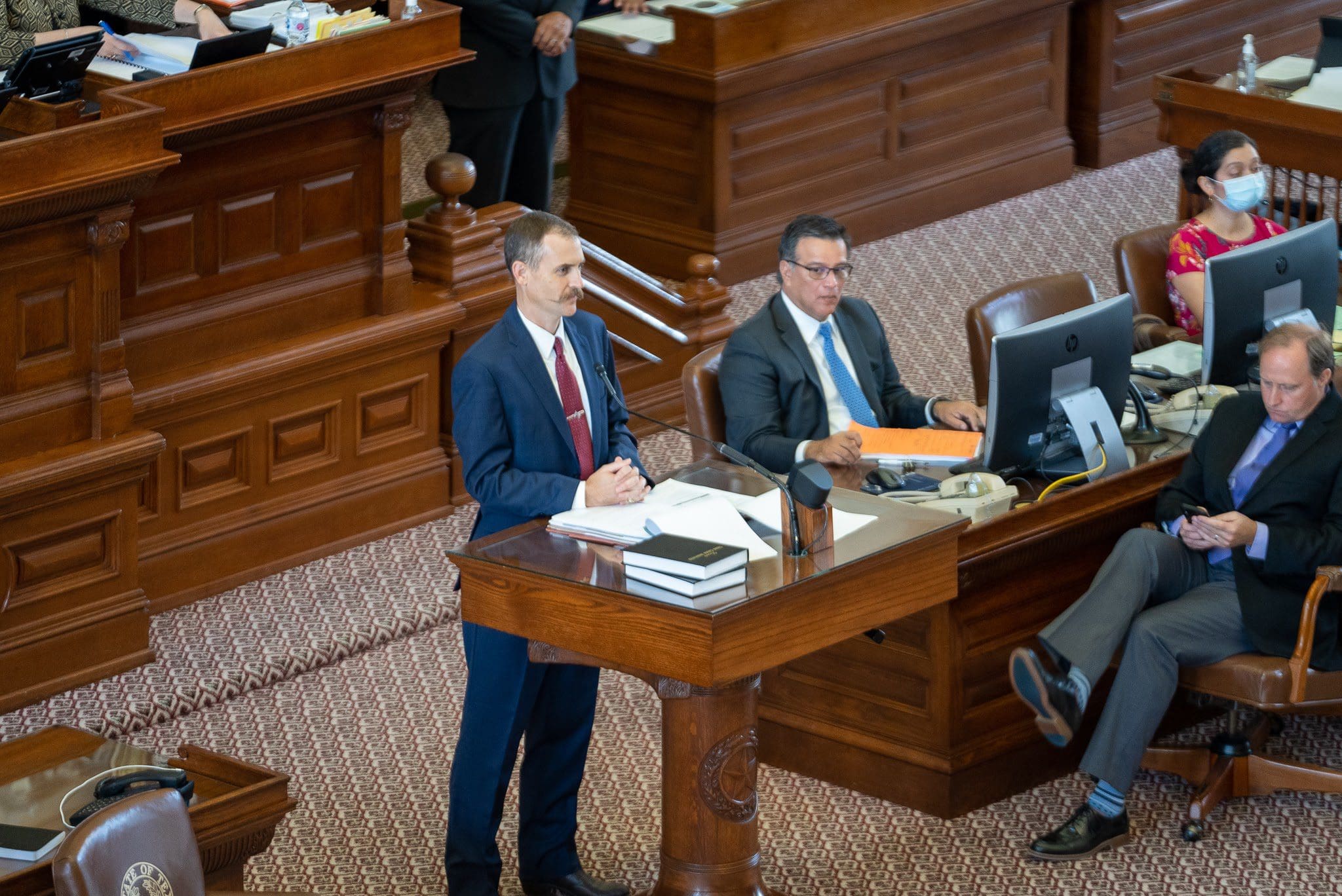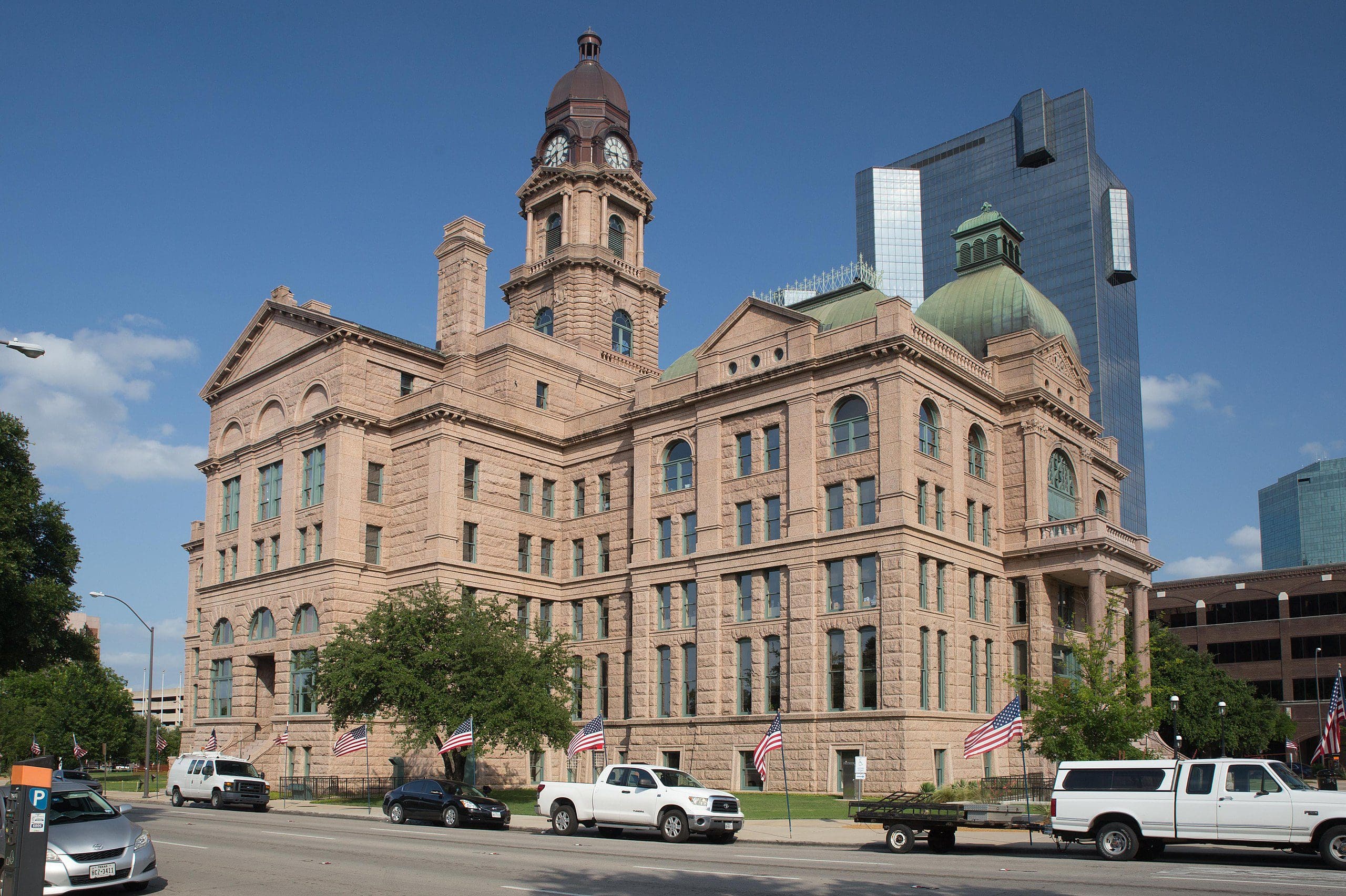On Thursday, the Texas House gave preliminary approval to Republicans’ top-priority election reform legislation, despite continuing opposition from Democrats.
House members voted 79-37 to advance Senate Bill 1, the major election integrity measure passed by the Senate two weeks ago.
After 37 days of blocking a vote on the bill by being absent without leave, enough Democrats were present to conduct business.
The bill passed was a “committee substitute” of Senate Bill 1.
In a committee hearing Monday, House Republicans replaced the contents of SB 1 with the language in House Bill 3 by State Rep. Andrew Murr (R–Junction).
But amendments by Murr and others added back several provisions from the Senate bill, bringing the two versions closer together in hopes of speeding up its final enactment.
Both bills differ from the major election reform bills proposed during the regular session, which the Republican-controlled Legislature failed to pass.
“We’ve all heard from Texas House Democrats in D.C. that this bill makes it harder to vote,” said State Rep. Matt Shaheen (R–Plano), asking Murr about how provisions in the bill relate to current law on early voting, poll watchers, and voter ID. “It sounds like there’s a lot of provisions to make it easier to vote, contrary to what we’ve heard.”
Democrats’ opposition during Thursday’s 12 hours of debate remained more subdued than in the regular session, after House Speaker Dade Phelan instructed members to refrain from using the term “racism.”
State Rep. Rafael Anchia (D–Dallas) did repeat claims that the proposed reforms were motivated by the 2020 election.
“Texas has consistently reviewed its election policies over time,” Murr said.
Anchia also claimed there is no voter fraud, sparking a lively response from State Rep. J.M. Lozano (R–Kingsville).
“We heard [about voter fraud] in special session from witnesses,” Lozano said, brandishing copies of forged mail-ballot applications provided by a Harris County election integrity advocate who spoke at Monday’s hearing. “If he [Anchia] had been here, he would have heard that.”
Lozano also described sweeping legislation from 2003 to stop mail-ballot voter fraud that received broad bipartisan support. That bill was sponsored by then-State Rep. Steve Wolens, a Democrat from Dallas whose district Anchia now represents.
The Legislature later expanded on Wolens’ work in a 2017 bill to deter mail-ballot fraud that passed in a special session.
In 2019, another big election reform bill died when lawmakers failed to reconcile Senate and House versions, and many of its provisions ended up in this year’s Senate bill.
During the 140-day regular legislative session, Republicans again struggled to agree on a compromise measure, and Democrats were allowed to leave the House in the final hours of the session to stop a final vote and kill the bill.
Days into the first special session in July, more than 50 House Democrats fled to D.C. to block a vote on any election integrity legislation. Midway into the second special session, enough quorum-busting Democrats had returned to the House floor to allow the legislation to pass.
Once SB 1 passes a final House vote, the bill goes back to the Senate.
The upper chamber can “concur” with the House version of SB 1, meaning they agree to all the changes made by the House; or they can request a “conference committee” of House and Senate members, who will work together to reconcile the two versions into a final bill that must be approved by both chambers.
Lawmakers have less than two weeks to deliver comprehensive election integrity reform. The current 30-day special session ends September 5.





